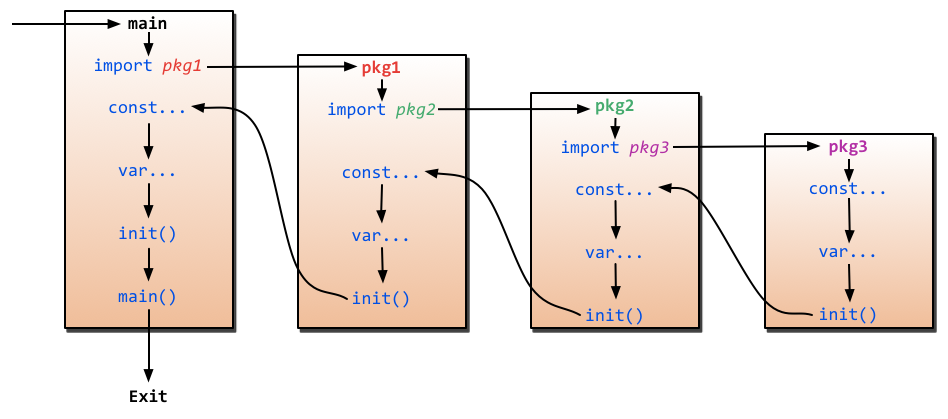When is the init() function run?
See this picture. :)
import --> const --> var --> init()

If a package imports other packages, the imported packages are initialized first.
Current package's constant initialized then.
Current package's variables are initialized then.
Finally,
init()function of current package is called.
A package can have multiple init functions (either in a single file or distributed across multiple files) and they are called in the order in which they are presented to the compiler.
A package will be initialised only once even if it is imported from multiple packages.
Yes assuming you have this:
var WhatIsThe = AnswerToLife()
func AnswerToLife() int { // 1
return 42
}
func init() { // 2
WhatIsThe = 0
}
func main() { // 3
if WhatIsThe == 0 {
fmt.Println("It's all a lie.")
}
}
AnswerToLife() is guaranteed to run before init() is called, and init() is guaranteed to run before main() is called.
Keep in mind that init() is always called, regardless if there's main or not, so if you import a package that has an init function, it will be executed.
Additionally, you can have multiple init() functions per package; they will be executed in the order they show up in the file (after all variables are initialized of course). If they span multiple files, they will be executed in lexical file name order (as pointed out by @benc):
It seems that
init()functions are executed in lexical file name order. The Go spec says "build systems are encouraged to present multiple files belonging to the same package in lexical file name order to a compiler". It seems thatgo buildworks this way.
A lot of the internal Go packages use init() to initialize tables and such, for example https://github.com/golang/go/blob/883bc6/src/compress/bzip2/bzip2.go#L480